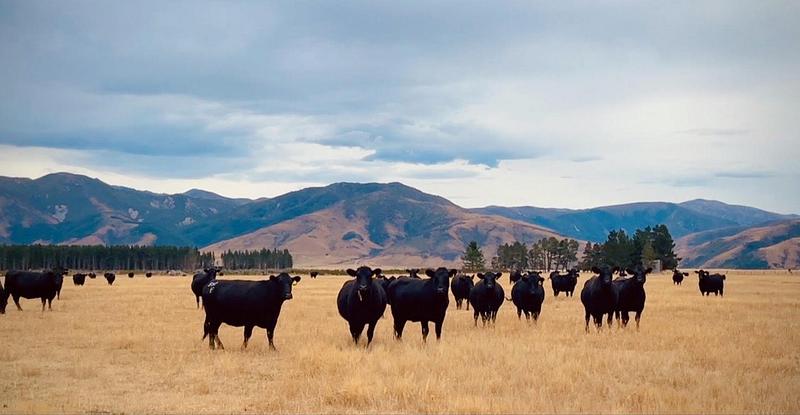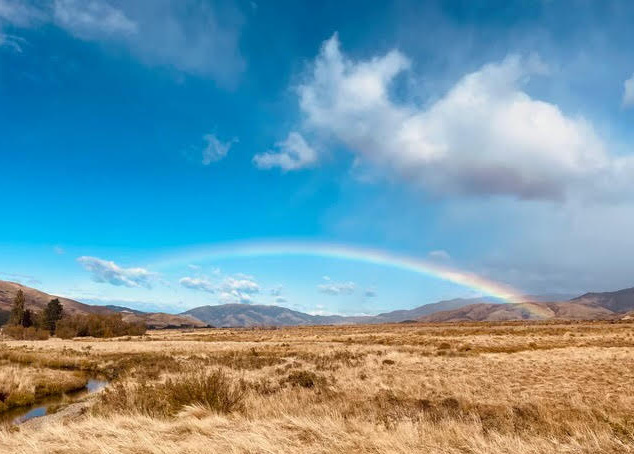
Clare Robinson ’25 is spending her senior year a little differently than her peers. Rather than taking on a traditional four-course load for each semester of her senior year, Robinson has decided to pursue a senior fellowship. Senior fellowships allow seniors who are extremely interested in a particular research question to spend the year pursuing a course of independent study and research. By the end of the year, they produce a research project akin to a master’s thesis.
Before she began her fellowship, Robinson spent last semester and summer in Christchurch, New Zealand, where she simultaneously worked as a conservation ranger and on a summer research project for the Levitt Center. “I talked to farmers, legislators and politicians,” she said. When she returned to the States, she made the decision to continue her project as a senior fellow.
In this role, Robinson has taken the lead on two research papers. One is about New Zealand farming and agriculture regulation and New Zealanders farmers’ perspectives on climate change, which has fifty interviews as its primary data set. The other paper explores renewable energy sources in New York. “New York has very intense renewable energy goals. They are trying to transition to a carbon-free grid very ambitiously compared to other states, so that means there are a lot of renewable energy sources being put in here,” Robinson explained. She also noted that the push for the renewable energy sources has come from urban legislators downstate who are not from the Central New York area. “We are looking at how people in rural communities actually feel about this.”
Questions about nuclear energy have emerged as a key part of Robinson’s research. “I think the idea that a lot of people have is that nuclear energy is going to pick up the slack that renewables can’t,” she said. Robinson noted, though, that the purpose of her project is not to devise a plan for a new energy landscape, but to explain how different stake-holders feel about the transition to renewable energy. “I think that people are really scared about what these transitions will look like. Yeah, people are worried about the economy, but they are also worried about premium farmland being used for solar fields. Solar has a massive footprint. That’s really scary for a lot of people, especially when you think about people who grew up here and are used to having pristine hills and then there are big wind turbines and solar fields everywhere,” she said.
Robinson recounted her experience talking with farmers in New Zealand. “Farming is a huge industry in New Zealand. It really is the backbone of their economy. They produce so much of the world’s dairy. So much of dried milk powder comes from New Zealand,” she said.
She also noted that since New Zealand is far more progressive than other countries on climate change, many New Zealanders feel as though they are bearing the brunt of this new climate change legislation. For example, lawmakers attempted to pass an extremely radical piece of legislation that would tax New Zealand farmers on every unit of methane they produced. New Zealand has essentially served as the guinea pig for different climate solutions. “It is a heated time to be a farmer in New Zealand right now.”
Robinson reflected on her experience in New Zealand: “I really loved living in New Zealand. It was really scary moving to a new country where I didn’t know anybody and to make a community from scratch but I thought it was so wonderful and a really transformative experience.” Robinson lived in a house with three girls near a beach and spent her free time surfing, rock climbing, hiking and backpacking. She even joined an adult women’s soccer team.
She also commented on her experience interacting with the New Zealand farming community: “These farming communities in New Zealand are super insular and very hard to break into. I went up to this beef and sheep station up in the high country. And it was so surreal. One of my coworker’s boyfriend is a shepherd there and he took me there to spend the night and I have never felt more like an outsider…we got in his truck and he had like six dead wallabees in the back and there were dogs all around and were driving up in the mountains.”
Robinson was able to gain insight into young farmers’ responses to the rise of corporate farming: “How hard this transition from small family farms to corporate farms. And how it’s becoming nearly impossible for young farmers to ever think about owning their own farm and New Zealand. And it’s interesting to think about the environmental implications of this because all these young farmers have been farming for decades and they care about this land. When these big corporate farms buy up farmland in New Zealand, they don’t have the same emotional attachment to the land.”
Robinson concluded by reflecting on her project as a whole: “What this whole project has taught me is that all these conversations we have need to be so much more nuanced. Speaking to people whose lives are most impacted by climate driven regulation, which I am really for. But then I have also spoken to landowners who don’t feel connected to their land because of wind turbines going up, I really feel that too.”

















